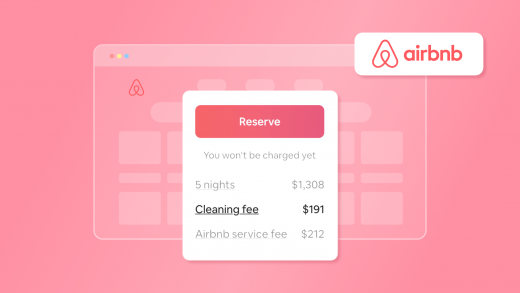If you are a vacation rental host, you have heard of Vrbo and Airbnb. Both are popular platforms, yet many new and even experienced hosts still ask the same question: What is Vrbo, and how does it work?
Understanding the meaning of Vrbo is more than just knowing what the letters stand for. It is about learning how the platform works, the guests it attracts, and whether it is the right fit for your property.
In this guide, we will explain what Vrbo means, what Vrbo stands for, and the key differences between Vrbo and Airbnb from a host’s perspective. We will also share the pros and cons of listing on Vrbo, along with tips to maximize your bookings.
As a professional Airbnb host, it’s essential to stay well-informed about the evolving industry trends. Additionally, using the right tools can be incredibly beneficial.
Hostex can help you seamlessly manage all your listings across multiple OTAs, its automation tools taking care of over 70% of your daily tasks, giving you more time to focus on what really matters. Plans start as low as $4.90 per month.

What Does Vrbo Mean?
Vrbo stands for Vacation Rentals by Owner.
The platform was launched in 1995, long before many of today’s online travel brands existed. Its original purpose was simple: to connect property owners directly with travelers who wanted to rent entire homes.
Over the years, Vrbo has evolved through several major milestones. It merged with HomeAway in 2006, which expanded its reach and inventory. Later, in 2015, Expedia Group acquired both brands, providing Vrbo with access to a wider global audience and stronger marketing capabilities. By 2019, the platform had fully rebranded as “Vrbo” and adopted a more modern, guest-friendly approach.
Today, Vrbo specializes in entire-home rentals, catering to families and groups who prefer private spaces over shared accommodations. This focus on whole-home stays has helped Vrbo attract a loyal base of travelers seeking comfort and space.
One final note: many people wonder how to pronounce “Vrbo.” While there’s no single official answer, most say either “ver-boh” or “ver-bow.”
How Does Vrbo Work for Vacation Rental Hosts
Vrbo holds an important position in the exclusive short-term rental market in North America and operates in multiple countries, although on a smaller scale.
- 2 million active listings on Vrbo
- Operating in 190 countries worldwide
- Up to 48 million users per month
Listing your property on Vrbo is straightforward and designed to help you reach a global audience.
1. Creating and Publishing a Listing
To get started, hosts create a Vrbo account, add property details, and upload high-quality photos. You set your nightly rates, cleaning fees, and house rules, as well as booking and cancellation policies. Once approved, your listing becomes visible to millions of travelers searching for entire-home stays.
2. Fee Structure
Vrbo follows a slightly different fee structure compared to Airbnb.
- Pay-per-booking fees: 3% payment processing and 5% commission fee.
- Annual subscription fee: depends on the property’s location and size.
3. Host Tools and Support
Vrbo provides features such as an integrated calendar, secure payment processing, and guest messaging.
Their Premier Partner program rewards hosts who maintain high ratings and booking reliability, improving search visibility.
In addition, Vrbo offers Book with Confidence protection, which helps safeguard transactions for both hosts and guests.
With these tools, hosts can manage their business more efficiently while building trust with potential guests.

Vrbo vs Airbnb: Key Similarities and Key Differences
Vrbo and Airbnb are two of the leading vacation rental platforms, each with its approach, target audience, and unique features.
We covered an in-depth comparison in our previous article Vrbo or Airbnb: Which Is Better for Hosts. Here, we will highlight the main points so you can quickly grasp the essential differences and similarities.
Key Similarities
- Global Reach
Both platforms operate internationally and attract millions of travelers each year. This makes them powerful channels for marketing vacation rentals. - Entire-Home Rentals
Although Airbnb offers shared spaces, both platforms allow hosts to list entire homes, which is the most popular choice for families and groups. - Online Booking and Secure Payments
Vrbo and Airbnb both process payments securely and transfer funds to hosts after check-in, offering protection against fraudulent transactions. - Review Systems
Each platform has a review system that lets hosts and guests share feedback, which helps build trust and transparency.
Key Differences
- Platform Ownership
Airbnb is an independent company. Vrbo is owned by Expedia Group, giving it access to a broader travel ecosystem. - Property Types
Airbnb offers private rooms and shared spaces in addition to entire homes. Vrbo focuses exclusively on whole-home rentals, appealing to families or groups wanting more privacy. - Target Audience
Airbnb serves a wide variety of travelers, including solo adventurers, business guests, and short-term city visitors. Vrbo primarily targets vacationers, especially families planning longer stays. - Service Fees
Airbnb charges both hosts and guests a service fee. Vrbo mainly charges guests, though hosts may choose a commission-based or annual subscription model. - Booking and Cancellation Policies
Airbnb allows a wide range of host-selected cancellation options, from flexible to strict. Vrbo policies are also customizable but may have different refund structures and deadlines. - Additional Services
Airbnb offers “Experiences” and other travel services beyond accommodation. Vrbo focuses purely on vacation rentals. - User Profiles
Airbnb provides detailed host and guest profiles, including personal descriptions and verification badges. Vrbo places more emphasis on the property details than on personal profiles. - Host Protections
Airbnb includes AirCover for hosts, offering damage protection and liability insurance. Vrbo offers liability protection and the “Book with Confidence” guarantee, but with different coverage terms.
Vrbo vs Airbnb Quick Comparison Table
| Feature | Vrbo | Airbnb |
|---|---|---|
| Ownership | Expedia Group | Independent company |
| Property Types | Entire homes only | Entire homes, private rooms, shared spaces |
| Target Audience | Families, group travelers | Wide range of travelers |
| Service Fees | Primarily guest-paid | Host and guest fees |
| Booking Policies | Customizable, fewer options | Flexible to strict |
| Extra Services | Lodging only | Lodging plus “Experiences” |
| User Profiles | Focus on property details | Detailed host and guest profiles |
| Host Protections | Liability and booking protection | AirCover with damage and liability protection |

Pros and Cons of Listing on Vrbo
Like any vacation rental platform, Vrbo has its strengths and weaknesses. Understanding them will help you decide whether it’s the right fit for your property and hosting style.
Pros
- Strong Appeal to Families and Long-Term Guests
Vrbo’s focus on entire-home rentals makes it a natural choice for families and larger groups. These guests often stay longer, which can help you reduce turnover and increase booking value. - High Privacy for Guests
Since Vrbo only lists whole properties, guests enjoy exclusive access without sharing the space. This privacy is a major selling point for travelers seeking a home-like experience. - Support from the Expedia Group
As part of the Expedia Group, Vrbo benefits from a large marketing budget, extensive travel partnerships, and high visibility across Expedia’s network of travel brands. - Less Competition in Certain Niches
In some markets, Vrbo faces less competition than Airbnb. This can make it easier for your property to stand out to a targeted audience.
Cons
- No Shared Room Market
Vrbo does not cater to travelers seeking private or shared rooms. If you rent out part of your home, Vrbo is not the right platform for you. - Lower Appeal to Younger Backpackers
Since Vrbo emphasizes full properties and often higher price points, it attracts fewer budget-conscious travelers, such as students and backpackers. - Potentially Less Transparent Fee Structure
Vrbo offers both a pay-per-booking commission and an annual subscription model. For new hosts, it may take time to determine which option is more cost-effective. - Regulatory Restrictions in Certain Cities
Some destinations have strict regulations for short-term rentals, which may affect your ability to list on Vrbo. Always check local laws before joining.
How to Decide: Vrbo, Airbnb, or Both?
Choosing between Vrbo and Airbnb depends on your property type, target audience, location, and how much time you can dedicate to management.
- Match Your Property Type to the Platform
If you offer an entire home, Vrbo is an excellent fit. For shared spaces, Airbnb is your only option. Hosts with multiple property types might benefit from using both platforms. - Consider Your Target Guests
Vrbo attracts families, long-term travelers, and guests seeking privacy. Airbnb reaches a broader audience, including solo travelers, younger guests, and those looking for unique experiences. - Factor in Location Demand
Some destinations have stronger demand on one platform. For example, beach houses may perform better on Vrbo, while urban apartments may see more bookings on Airbnb. - Assess Your Management Capacity
Managing listings on multiple platforms requires time, attention, and good organization. If you cannot monitor calendars and messages regularly, a single platform might be safer.
As an experienced vacation rental host, it’s highly recommended to list your property on both Vrbo and Airbnb, along with other platforms like Booking.com. This strategy can help you expand your reach, fill more dates, and minimize seasonal booking gaps. However, it’s crucial to manage your listings carefully to avoid double bookings and inconsistent pricing.
To streamline your operations, consider using a channel manager or vacation rental management software, such as Hostex. These tools allow you to synchronize calendars, prices, and guest information across multiple platforms. By doing so, you can ensure a seamless guest experience while avoiding costly mistakes.

Tips for Maximizing Bookings on Vrbo
If you’re using Vrbo to list your property, there are several strategies you can implement to boost your visibility, attract more guests, and increase your bookings. Here are some essential tips:
1. Optimize Your Listing Title and Description
A well-crafted title and description can make all the difference in attracting potential guests.
Title: Make sure your title is clear, concise, and includes relevant keywords that guests are likely to search for. Use descriptive words that highlight the unique features of your property. For example, instead of simply saying “Beachfront Condo,” try something like “Charming Beachfront Condo with Panoramic Ocean Views.”
Description: Your property description should focus on the unique selling points that set your property apart from others. Mention the amenities, location, nearby attractions, and anything that can make your property stand out. Use keywords naturally, and avoid keyword stuffing. The goal is to paint a picture that entices guests to click on your listing and book their stay.
2. Invest in High-Quality Photos and Virtual Tours
High-quality, professional photos are a must when listing your property on Vrbo. Guests will often make decisions based on the visual appeal of your listing, so ensure your images are clear, well-lit, and highlight the best features of your property.
Consider including a virtual tour or video walk-through of your property. This gives guests an immersive experience and provides them with a better sense of what they can expect, helping them feel more confident in their decision to book.
3. Set Competitive and Smart Pricing
Pricing plays a crucial role in attracting bookings. Setting the right price can make or break a deal.
Start by researching comparable properties in your area to understand the going rates. Keep in mind that competitive pricing doesn’t mean underpricing your property; instead, it’s about offering value for the price.
Dynamic Pricing: Consider using dynamic pricing tools that adjust your rates based on demand, seasonality, and local events. This helps you stay competitive and ensures you’re not missing out on potential earnings during peak times.
Promotions: Offer discounts for extended stays or last-minute bookings to entice guests. Seasonal promotions can also help fill your calendar during slower periods.
4. Offer a Flexible Booking and Cancellation Policy
Offering a flexible or moderate booking and cancellation policy can give potential guests peace of mind, leading to more bookings. Vrbo offers various policy options, so choose one that aligns with your comfort level and business goals.
Remember, offering flexibility doesn’t mean you can’t protect yourself against cancellations – just ensure your policy is clearly communicated and fair to both you and your guests.
5. List All Amenities to Match More Guest Needs
Vrbo guests often search based on specific amenities, so the more you provide, the more likely you are to match their needs.
Essentials: Ensure you list essential amenities like Wi-Fi, air conditioning, heating, and a fully equipped kitchen.
Extras: Consider adding other perks, such as a hot tub, pool, gym, or outdoor space, and make sure to highlight these in your listing.
Guests are more likely to book if they know the property has everything they need for a comfortable stay.
6. Respond Quickly to Guest Inquiries
One of the most important aspects of maximizing bookings on Vrbo is responding quickly to guest inquiries. The faster you reply, the more likely guests are to secure their reservation with you instead of looking elsewhere.
Vrbo often ranks properties based on response time, and maintaining a quick response rate can boost your visibility on the platform.
You can use Hostex to automate guest communication. The AI-powered auto-replies handle guest inquiries around the clock, even while you’re asleep, while the Triggered Messaging feature sends automatic reminder messages to guests at key points during their stay.
7. Get More Positive Reviews
Positive reviews are crucial for increasing your booking rates. Guests are more likely to book a property with high ratings and positive feedback.
Encourage Reviews: Politely ask guests to leave reviews after their stay. Make it easy for them by sending a reminder message, thanking them for their visit, and kindly requesting that they share their experience.
Respond to Reviews: Always respond to reviews, whether positive or negative. Thank guests for their feedback, and address any concerns professionally and constructively. This shows potential guests that you value their input and are committed to improving their experience.
8. Use Premier Partner Status to Boost Exposure
Becoming a Vrbo Premier Partner can significantly increase your exposure on the platform. Premier Partners are given priority in search results and are often featured in Vrbo’s promotional campaigns.
To achieve Premier Partner status, you’ll need to meet certain performance criteria, including maintaining a high response rate, receiving positive reviews, and adhering to Vrbo’s standards of excellence.

Final Thoughts
Vrbo has firmly established itself as a key player in the vacation rental space, offering hosts a powerful platform to reach travelers looking for unique stays. While it may not have the same market share as Airbnb, Vrbo’s specialized focus on entire homes and family-friendly accommodations sets it apart, making it a valuable option for hosts.
As a host, it’s essential to choose the platform that best aligns with your goals, target audience, and property type. However, for more experienced hosts looking to maximize exposure, listing your property on multiple platforms like Vrbo, Airbnb, and even Booking.com can help expand your reach and fill more dates year-round.
Regardless of the platform, the key to success remains consistent: continuously optimizing your listings, improving guest experiences, and adapting to changing trends. By doing so, you’ll stand out from the competition and attract more bookings, no matter where your property is listed.



